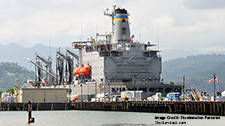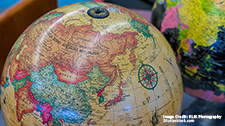Iran and Japan Relations in a Transitional World Order

Javad Heiran-Nia
Both the Japanese and Iranian foreign policies are under evolution. Given the changing global security environment, their foreign policy approach toward each other is continuously changing, and the Free and Open Indo-Pacific (FOIP) strategy is certainly one important factor that shapes Japanese foreign policy towards Iran as well as the Middle East. Iran, on its part, is strengthening its ties with China and North Korea which is concerning for Japan.
This issue brief sheds light on the mutual perception and misperception of Iran and Japan towards each other and how they aim to navigate the difficult terrain to maintain a relationship. Japan has adopted a pragmatic orientation towards the Middle East, and Iran constitutes the core of this pragmatism even though Tokyo’s foreign policy thinking is aligned with the American policy outlook on Iran.
Related Publications
-
ISDP Annual Report 2023
ISDP’s Annual Report for the year 2023. We look back on 2023, a year in which tensions and conflicts captured the strategic space in ISDP’s focus areas, making headlines around […]
-
India-Japan-Philippines: A Strategic Maritime Trilateral or More?
Regional states like India, Japan, and the Philippines have been seeking cooperative solutions with other middle powers that can both counter the Chinese influence and fulfill other economic as well […]
-
The Limitations of India and Russia’s Transactional Relationship
Since Russia’s unprovoked invasion of Ukraine in February 2022, it might seem as though ties between India and Russia have strengthened. While much of the West isolated Russia, India-Russia energy […]
-
The Global South Scaled in Japan’s New Outreach
The “Global South” is no longer just a growing buzzword confined to academic publications but has found increasing resonance in strategic circles. Even as Russia’s invasion of Ukraine consolidated the […]
-
A Possible Strategy for the Defense of Taiwan
This issue brief examines the possibility of a People’s Liberation Army’s (PLA) offensive to capture the island of Taiwan from a military perspective. It analyzes the military geography, the threat […]




